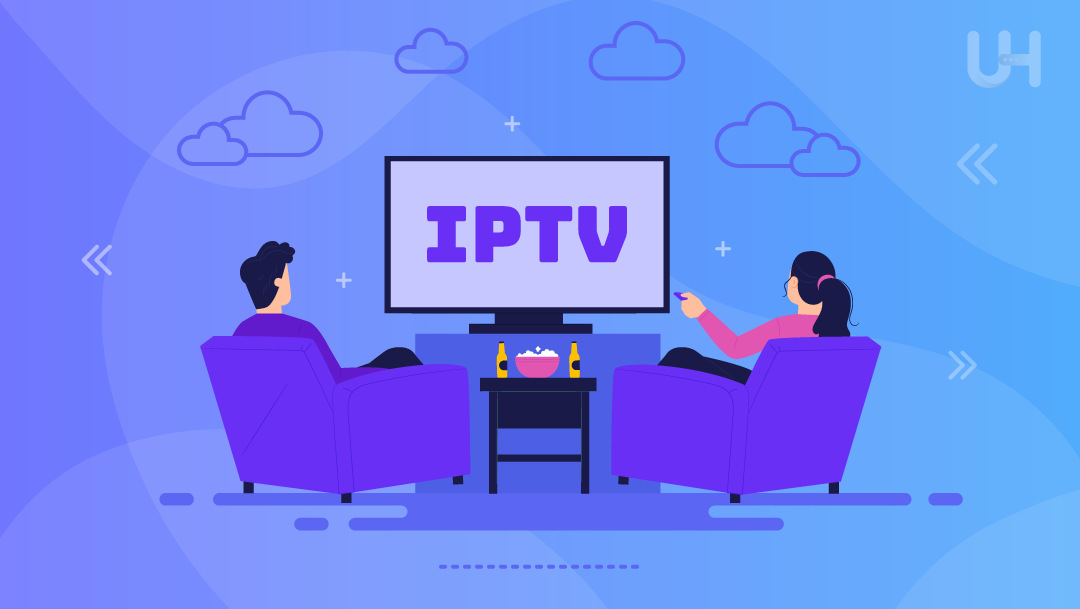IPTV Explained: Why It's Revolutionizing the Way We See Television
The appearance of Web Procedure Television (IPTV) represents a critical change in exactly how audiences involve with web content. By leveraging web connectivity, IPTV goes beyond typical broadcasting restrictions, providing viewers a vibrant and personalized media experience. This modern technology not just offers accessibility to a wealth of shows on-demand however also presents interactive features that accommodate modern-day seeing preferences. As we discover the complexities of IPTV, it ends up being obvious that this evolution is not just a fad; it presents significant effects for the future of television consumption and the landscape of electronic amusement.
What Is IPTV?
IPTV, or Internet Protocol Tv, is a method of supplying television content online as opposed to via traditional satellite or cord layouts. This cutting-edge method uses internet protocol networks to send video clip information, allowing customers to access a wide variety of shows directly using their web link. Unlike traditional broadcasting, which depends on radio waves or cord framework, IPTV makes it possible for the streaming of material in a much more user-centric and flexible way.
Among the crucial advantages of IPTV is its ability to offer on-demand access to a huge collection of programs, flicks, and live programs. Customers can appreciate personalized seeing experiences, including the choice to stop, rewind, or record content. In addition, IPTV solutions usually include interactive attributes, such as video clip as needed, catch-up tv, and the capability to gain access to several gadgets all at once.

How IPTV Works

The process starts with content aggregation, where numerous tv channels and programs are compiled onto a central web server. From this web server, the content is encoded into electronic layouts suitable for streaming. When a user chooses a program, the IPTV solution retrieves the ideal data packets from the server and transfers them to the customer's tool.
IPTV often includes interactive features such as time out, rewind, and gain access to to a digital collection, enhancing user involvement. In general, IPTV stands for a sophisticated assimilation of technology that changes traditional tv viewing into an extra customized and vibrant experience.
Benefits of IPTV
As audiences progressively look for versatility and personalization in their enjoyment selections, IPTV provides a series of advantages that accommodate these demands. Among one of the most considerable advantages is the ability to accessibility material on various gadgets, including smart devices, tablet computers, wise Televisions, and computers go to this website - Iptv. This multi-device compatibility allows customers to enjoy their favorite programs and movies anytime, anywhere, boosting their watching experience
Furthermore, IPTV offers a considerable library of on-demand web content, allowing subscribers to pick what to view, when to see it, and just how to enjoy it. This contrasts with typical broadcasting methods, where visitors are typically constrained by taken care of schedules. Furthermore, IPTV services often provide customization functions, such as tailored suggestions based upon seeing behaviors, allowing individuals to uncover new web content fit to their preferences.
Additionally, IPTV generally includes innovative functions like cloud DVR capacities, making it possible for users to videotape and keep programs for later viewing. Improved interactivity, such as the capacity to pause, rewind, or fast-forward material, more improves the seeing experience. Iptv. Collectively, these advantages placement IPTV as a compelling option to standard tv, fulfilling the developing assumptions these days's audiences
Contrast With Typical TV
Conventional television and IPTV existing distinctive watching experiences, each accommodating different audience preferences. Standard television counts on wire, satellite, or terrestrial signals, offering a taken care of timetable for broadcasting. Viewers are commonly bound to specific time slots to view their preferred shows, which can be inconvenient in today's fast-paced atmosphere.
On the other hand, IPTV delivers material through the internet, allowing users to stream programs and flicks on-demand. This adaptability makes it possible for visitors to see content at their benefit, eliminating the constraints of a fixed timetable. Furthermore, IPTV services often supply access to a broader array of channels and web content, consisting of international programming and particular niche genres that typical wire plans might not supply.
In addition, the interactivity of IPTV improves user involvement, enabling features such as record, rewind, and time out abilities that conventional television does not have. Individuals can also access supplementary web content, including thorough program guides and visitor scores, enriching the general viewing experience.
Inevitably, while conventional tv stays a staple for several audiences, IPTV's versatility and wide range of material make it my link an increasingly prominent choice, attracting those seeking more control over their watching practices.
Future of IPTV
The future of IPTV shows up promising, driven by improvements in modern technology and shifting customer preferences. As broadband facilities continues to boost worldwide, IPTV solutions are poised to provide higher-quality video clip material with very little buffering and enhanced individual experiences. This progression is matched by the spreading of clever devices, making it possible for viewers to gain access to IPTV material on smartphones, tablets, and smart Televisions, hence improving convenience and movement.
Additionally, the combination of expert system and equipment discovering right into IPTV systems is anticipated to reinvent content shipment. Personalized suggestions based on checking out routines will certainly boost customer engagement, making it simpler for customers to uncover relevant web content. Additionally, the incorporation of augmented truth (AR) and online truth (VIRTUAL REALITY) modern technologies holds the prospective to produce immersive seeing experiences that standard tv can not match.
The increase of subscription-based designs moved here and ad-supported streaming services indicates a shift in how customers want to spend for material, further fueling IPTV's development. As even more customers seek flexibility and modification in their checking out routines, IPTV is likely to become a dominant pressure in the amusement landscape, improving exactly how content is generated, distributed, and eaten in the coming years.
Conclusion
In verdict, IPTV represents a transformative advancement in television intake, providing visitors extraordinary versatility and control over their watching experiences. As innovation proceeds to evolve, the capacity for IPTV to more influence media usage patterns and improve the home entertainment landscape stays substantial.
The appearance of Internet Procedure Tv (IPTV) signifies a critical change in just how audiences engage with material.IPTV, or Net Protocol Tv, is a technique of providing tv web content over the internet rather than with standard satellite or wire formats.Using a network of web methods, IPTV provides television content with a series of distinct procedures. Additionally, IPTV solutions often supply customization attributes, such as tailored referrals based on viewing behaviors, permitting customers to discover new content fit to their preferences.
Furthermore, IPTV services commonly give accessibility to a wider variety of channels and web content, consisting of worldwide programs and specific niche categories that conventional cable television bundles might not supply.